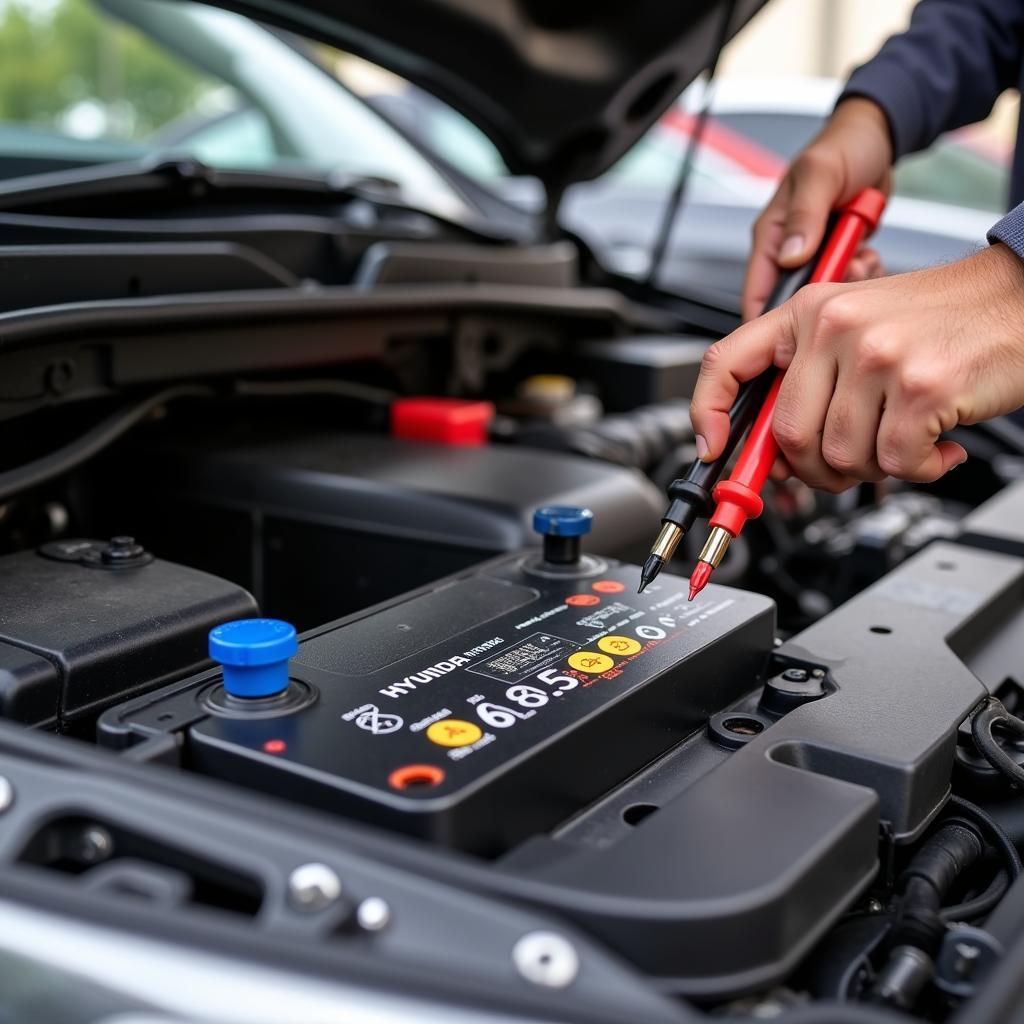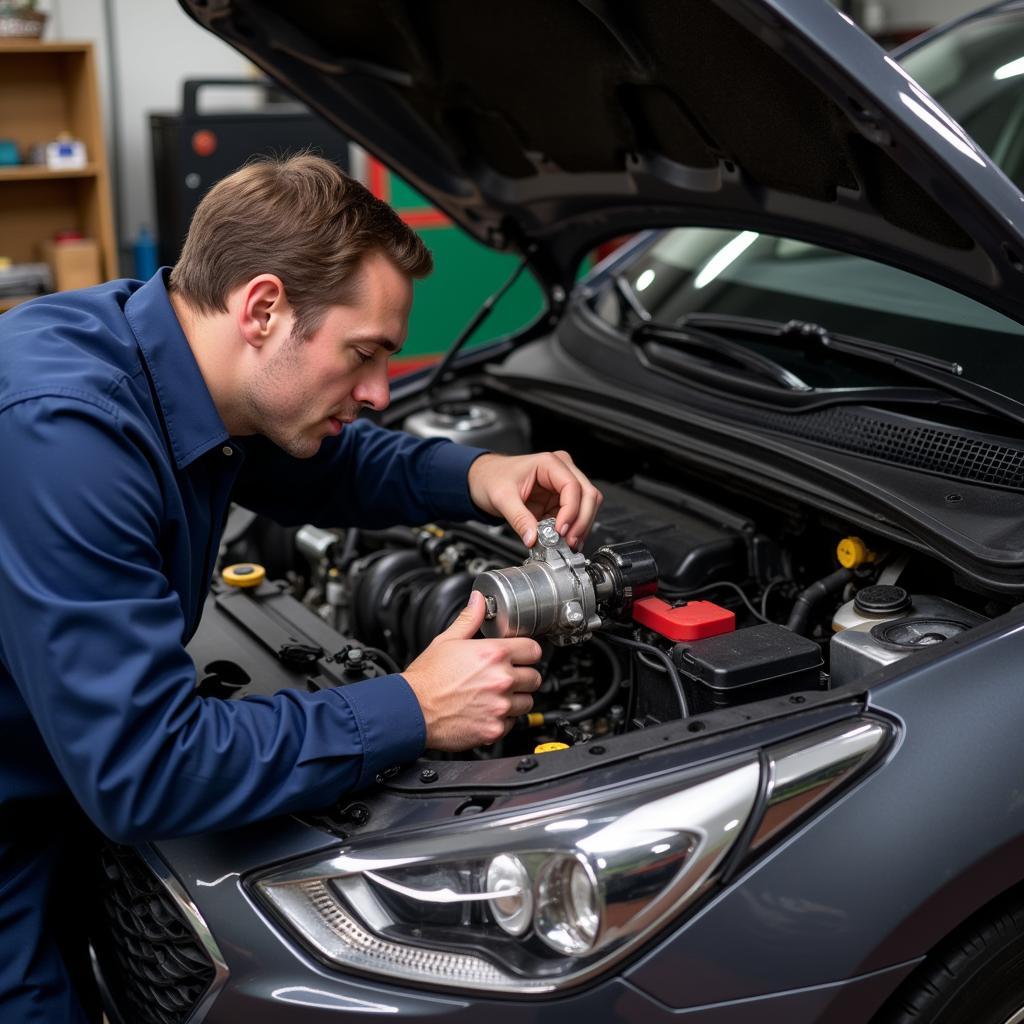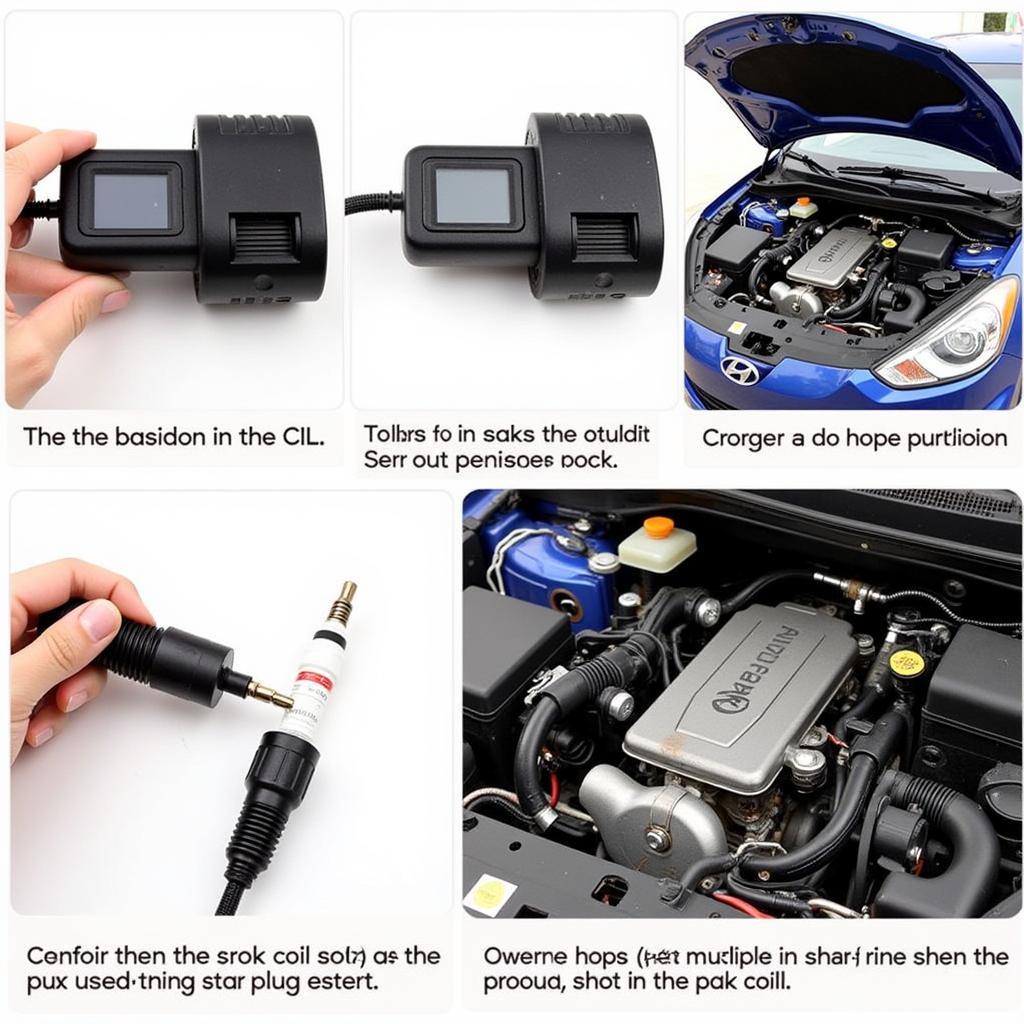Experiencing a Hyundai Car Starting Problem can be frustrating, leaving you stranded and unsure of what to do. This guide will delve into the common causes of Hyundai starting issues and provide you with practical solutions, whether you’re a car owner, a mechanic, or an automotive technician.
 Checking the car battery of a Hyundai that won’t start
Checking the car battery of a Hyundai that won’t start
One of the first things to check when your Hyundai won’t start is the battery. A weak or dead battery is a frequent culprit. You can test the battery voltage using a multimeter. how much to inspect car for problem If the voltage is low, try jump-starting the car. If the car starts, the battery likely needs replacing.
Common Causes of Hyundai Car Starting Problems
Several factors can contribute to Hyundai car starting problems, ranging from simple issues like a dead battery to more complex problems with the starter motor or electrical system. Understanding these potential causes is crucial for effective troubleshooting.
Battery Issues
A dead or weak battery is the most common reason for a Hyundai not starting. Factors such as extreme temperatures, leaving lights on, or an old battery can drain its power.
- Signs of a bad battery: Dim headlights, slow cranking, clicking sound when turning the key.
- Solution: Jump-start the car. If it starts, have the battery tested and replaced if necessary.
Starter Motor Problems
The starter motor is responsible for cranking the engine. If it’s faulty, the engine won’t turn over.
- Signs of a bad starter motor: Clicking sound when turning the key, no cranking, intermittent starting issues.
- Solution: Have the starter motor tested and replaced if necessary.
 Inspecting the starter motor of a Hyundai
Inspecting the starter motor of a Hyundai
Alternator Problems
The alternator recharges the battery while the engine is running. A faulty alternator won’t charge the battery, eventually leading to a starting problem.
- Signs of a bad alternator: Dim headlights, flickering dashboard lights, battery warning light illuminated.
- Solution: Have the alternator tested and replaced if needed.
Faulty Ignition System
The ignition system provides the spark needed to ignite the fuel-air mixture in the engine cylinders. Problems with the ignition switch, coil, or spark plugs can prevent the engine from starting. problem with sensors on cars
- Signs of a faulty ignition system: Engine cranks but doesn’t start, misfiring, rough idling.
- Solution: Have the ignition system components checked and replaced if necessary.
Fuel System Issues
If the engine isn’t getting fuel, it won’t start. This could be due to a clogged fuel filter, a faulty fuel pump, or a problem with the fuel injectors.
- Signs of fuel system issues: Engine cranks but doesn’t start, sputtering engine, strong fuel odor.
- Solution: Have the fuel system inspected and repaired as needed.
Troubleshooting Hyundai Car Starting Problem
- Check the battery: Test the voltage and jump-start the car if needed.
- Inspect the starter motor: Listen for clicking sounds and have it tested if suspected.
- Examine the alternator: Look for warning signs like dim headlights and have it tested.
- Check the ignition system: Inspect the ignition switch, coil, and spark plugs.
- Inspect the fuel system: Check for fuel leaks, clogged filters, and proper fuel pump operation.
 Checking the ignition system components of a Hyundai
Checking the ignition system components of a Hyundai
“A common mistake people make is assuming it’s always the battery. While a dead battery is a frequent cause, other components like the starter or alternator can also be the culprit,” says automotive expert, Michael Stevenson. “A thorough diagnosis is essential to pinpoint the exact problem.”
Hyundai Elantra and Tucson Specific Starting Problems
Certain Hyundai models, such as the Elantra and Tucson, might experience specific starting problems related to their respective systems. hyundai elantra car problems For instance, hyundai tucson car alarm problems can sometimes drain the battery and cause starting issues. car computer box problems can also lead to starting difficulties. It’s essential to consider these model-specific issues during troubleshooting.
“Regular maintenance is crucial for preventing starting problems,” says automotive specialist, Sarah Chen. “Simple tasks like checking the battery terminals for corrosion and ensuring proper fluid levels can significantly reduce the risk of starting issues.”
Conclusion
Addressing a Hyundai car starting problem requires a systematic approach to diagnose the underlying cause. By understanding the common culprits and following the troubleshooting steps outlined in this guide, you can effectively resolve the issue and get your car back on the road. If you’re still struggling to identify the problem, it’s always best to consult a qualified mechanic for professional assistance. For further assistance or to schedule an appointment, contact AutoTipPro at +1 (641) 206-8880 or visit our office located at 500 N St Mary’s St, San Antonio, TX 78205, United States.




Leave a Reply